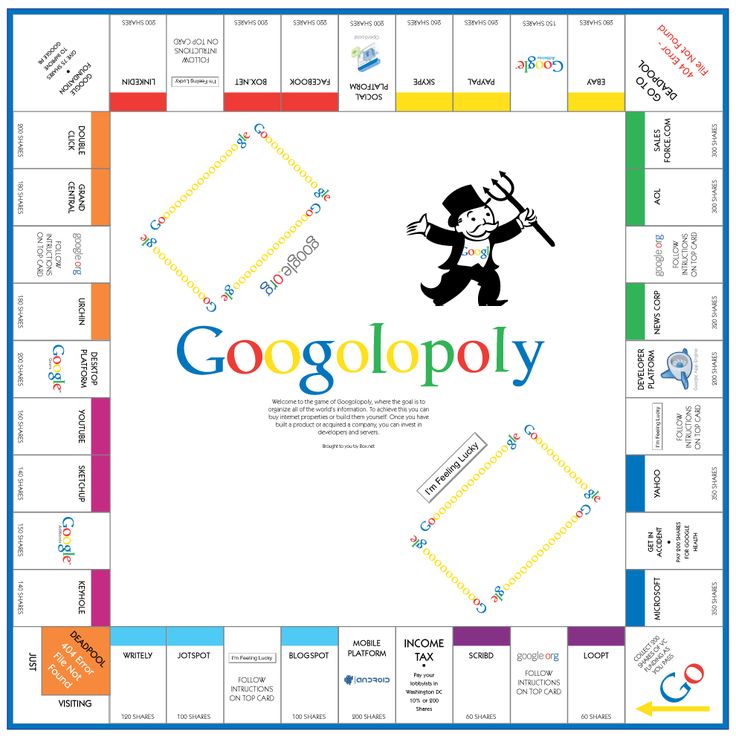The next big thing is always around the click
The pace and power of Web-fueled innovation is stunning. One day we’re swearing by Outlook; the next, we can’t live without Gmail. These sea changes exemplify the beauty of the net: greener waters are but a click away. Indeed, the list of tech titans that could have surfed a wave to even greater heights, but missed the boat, is long and instructive.
First, a couple of caveats:
1. Some of these companies may not have missed the above gaps so much as they skipped them. There’s often no right answer in the quest to perfect your core business vs. tacking on new features.
2. None of these companies has been MySpaced. To the contrary, each remains well-regarded and innovative in its own right.
Now the list:
1. Google Docs missed the SlideShare boat.
Sure, Google Docs can display PDFs and PPTs, but documents are slow to load, maximized by default, and can’t easily be shared or embedded. By contrast, SlideShare is known as “YouTube for documents” because it’s fast, user-friendly, and social.
2. Google Docs missed the Dropbox boat.
The search giant could have added synchronization to Google Docs (or GDrive), but it passed. Meanwhile, Dropbox pioneered this feature, for which it’s now the gold standard. And, in an ironic twist, during a five-day, company-wide hackathon, Dropbox developed the ability to sync its accounts with Google Docs. (Continuing the cycle, Google may soon unleash a Dropbox killer.)
3. Microsoft Office missed the Google Docs boat.
Only after company after government after nonprofit had “gone Google” did Redmond release a cloud-based, collaborative version of its cash cow (and a few videos contrasting Office with Docs).
4. iTunes missed the Spotify boat.
Apple cornered the digital music market years ago, yet beyond its breakthrough to sell songs for 99 cents apiece, Cupertino never really innovated with iTunes. Specifically, the software’s lack of social and streaming services created massive opportunities that Spotify—and Pandora, Amazon, Google, and Facebook—pounced on. Apple now is playing catch-up with Ping (pathetic) and iCloud (promising).
5. Mapquest missed the Google Maps boat.
When I was in college, “Mapquest” was so popular we used it as a verb. Today, it seems that the only people who use this site are those who still have an AOL address. The reason: thanks to relentless innovation—mash-ups, Street View, a GPS-like mobile app—Google Maps has presented itself everywhere you want to travel.
6. Google Latitude missed the Foursquare boat.
Ironically, the founder of Foursquare was a former Googler who left because Mountain View wouldn’t allocate enough resources to his team, “leaving us to watch as other startups got to innovate in the mobile + social space.” This dearth of attention still describes Google Latitude, whereas Foursquare’s points system, partnership with American Express, and merchant features have generated growth of a million users per month. (Perhaps this is why Google may want to buy Foursquare instead of competing with it.)
7. Facebook missed the LinkedIn boat.
When I learned of LinkedIn, my first thought was, Can’t you already do this with Facebook? Well, yes, but not without hassle. The great insight of Reed Hoffman, LinkedIn’s founder, was that while we want to be hip in our personal lives, we want to be practical and maybe even a little boring in our careers. This is why we use one e-mail address for pleasure and one for business, and why we use Facebook to socialize with friends and LinkedIn to network with colleagues. Recognizing this, Facebook continues to hype its business offerings, while such credibility comes naturally to LinkedIn.
8. Facebook missed the Twitter boat.
When I learned of Twitter, my first thought was, Can’t you already do this with Facebook? Technically, yes. Indeed, at its core, Twitter merely is the Facebook status update. Yet Facebook lacked Twitter’s adrenaline, simplicity, and pith, a void that the ascetic Twitter founder, Jack Dorsey, was keen to fill. Apparently, 100 million people agree.
9. Blogger and WordPress missed the Tumblr boat.
When I learned of Tumblr, my first thought was, Can’t you already do this with Blogger and WordPress? Just write shorter. Again, you could, but not with Tumblr’s simplicity, community, and reblogging feature. Microblogging, it turns out, is different from blogging. (No doubt, this is why Blogger just announced Dynamic Views.)
10. Yelp missed the Foodspotting boat.
Even though Yelp remains the top social network for restaurant reviews, it overlooked an essential facet of the dining experience: pictures. Foodspotting seized this opening, made it mobile, and now is expanding its focus beyond foodies.
So why do these examples matter? They matter because of the lessons they offer for lawmakers.
The beauty of the Web is that it dramatically lowers the traditional barriers to entry, so that an entrepreneur can penetrate a market that’s already saturated. As TechCrunch’s Sarah Lacy has noted, when LinkedIn was launched, “All the big Valley venture capital guns were behind Friendster. Mark centerfold-of-Vanity-Fair-this-month Pincus was behind Tribe. And Sean ‘you-know-what’s-cool?’ Parker was behind Plaxo.” Today, LinkedIn is a public company with a $7.5 billion market cap and 115 million users.
Similarly, despite heavy competition from the likes of LinkedIn, Yahoo, Facebook, Google-owned Ardvark, and Answers.com, Quora plunged into the Q&A fray. In short order, it’s carved out and capitalized on a niche.
Combine these examples with the above list and you arrive at an underappreciated conclusion: Internet innovation is so fierce and constant that it undermines the notion of zero-sum market share. Instead of vying for a piece of the same fixed and static pie, webtrepreneurs bake whole new pies. Not for nothing does Jeff Bezos insist that the Kindle comprises a “different product category” than the iPad: just because a company maintains a seeming monopoly on a market doesn’t mean the market is devoid of opportunities. When there’s an innovator, there’s a way. With the Web, Goliath is always vulnerable.
This milieu should make us skeptical when an antitrust charge is volleyed around, as it has been recently in the form of a lawsuit from the Justice Department, an investigation from the Federal Trade Commission, and a hearing from Congress.
We should be especially skeptical because Internet innovation comes in tidal waves: big and bold. By contrast, when’s the last time your microwave got a radical upgrade? Or your shower head? And how’s that electric car coming along?
In the end, the Web’s rising tides lift the only ship that matters: the user’s.
A version of this blog post appeared on Mashable on October 14, 2011.
Addendum (9/19/2012): Paul Carr, of PandoDaily, cites additional examples: “News aggregation commoditized breaking headlines to the point where newspapers could no longer justify spending hundreds of thousands of dollars on investigative reporting, only to have the meat of the story republished by the HuffPodt or Gawker. Music discovery blogs, and radio services like Pandora, or jukeboxes like Spotify, chewed music companies down to the core. Netflix makes movie distribution less profitable. Craigslist killed classifieds.”
Addendum (10/1/2014): Here’s another example, from Keith Rabois, a partner at Khosla Ventures and a former PayPal exec: “PayPal hasn’t innovated in the United States in a decade, and it shows. You’ve seen the rise of companies like Braintree, Stripe and Square”—three fast-rising payment startups of the last few years—“and all of them happened right under PayPal’s nose.”
Unpublished Notes
If you’re not innovating continuously, someone else will do it for you.
Stagnation signals an opening that a nimble competitor is all-too-happy to exploit.
In taking on Internet Explorer and Firefox, Chrome made browsers better. In taking on Flickr, Picasa improved online photo sharing. In taking on Facebook, Google+ forced privacy changes.
Despite its attention to mobile apps, Twitter overlooked the popularity of snapping pics on a smartphone. This allowed Instagram to swoop in and cultivate a loyal following.




